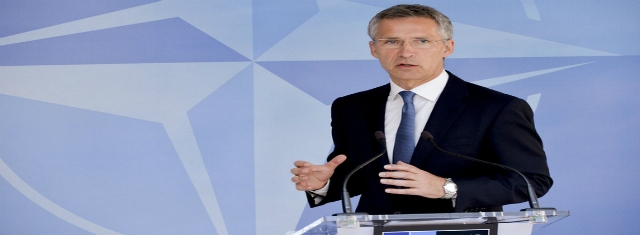News
Iran Nuclear agreement
NATO Statement

Jens Stoltenberg (Source: NATO Copyright)
USPA NEWS -
I warmly welcome the comprehensive landmark agreement reached today between Iran and the international community. I commend the parties for their perseverance. This agreement represents a historic breakthrough which, once fully implemented, will strengthen international security.
It is critical for Iran to implement the provisions of today´s agreement and to fulfil all its international obligations and advance security in the region and beyond. (NATO Secretary General Jens Stoltenberg)
About the talks (Source: Economist explains)
Talks that led to a breakthrough interim agreement agreed in November of 2013, known both as the Geneva Accord and the Joint Plan of Action, began in February of that year. Prior to that there had been numerous (unsuccessful) attempts to negotiate a deal with Iran since 2002 when Iranian dissident groups raised the alarm over the country´s nuclear programme by revealing the existence of two facilities that had not been declared to the International Atomic Energy Agency (IAEA).
About the talks (Source: Economist explains)
Talks that led to a breakthrough interim agreement agreed in November of 2013, known both as the Geneva Accord and the Joint Plan of Action, began in February of that year. Prior to that there had been numerous (unsuccessful) attempts to negotiate a deal with Iran since 2002 when Iranian dissident groups raised the alarm over the country´s nuclear programme by revealing the existence of two facilities that had not been declared to the International Atomic Energy Agency (IAEA).
What needs to happen by July 1st?
Basically, a lot more of the technical detail needs to be filled in. The exact nature of the inspection and verification regime is especially important as are the penalties for non-compliance (such as automatic snapback of US and EU sanctions and new UN resolutions). Because the framework agreement was so specific, some of the heavy lifting has been done. But the negotiator´s watchword is that until everything is agreed, nothing is agreed.
Further reading (The Economist explains) please click on 'more information' link below.
Basically, a lot more of the technical detail needs to be filled in. The exact nature of the inspection and verification regime is especially important as are the penalties for non-compliance (such as automatic snapback of US and EU sanctions and new UN resolutions). Because the framework agreement was so specific, some of the heavy lifting has been done. But the negotiator´s watchword is that until everything is agreed, nothing is agreed.
Further reading (The Economist explains) please click on 'more information' link below.
more information: https://www.economist.com/blogs/economist-explains/2015/04/economist-explains-3
Liability for this article lies with the author, who also holds the copyright. Editorial content from USPA may be quoted on other websites as long as the quote comprises no more than 5% of the entire text, is marked as such and the source is named (via hyperlink).





